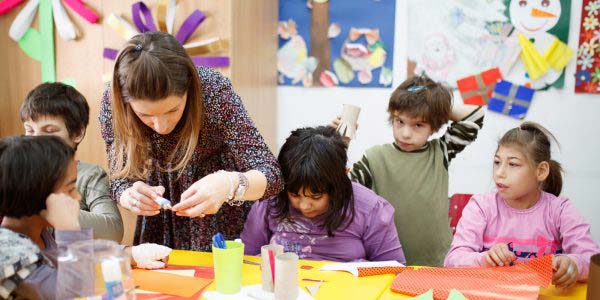- June 30, 2024
- Posted by: Dr Sanjeev Dev Malik
- Category: blog

Emotions are a fundamental aspect of human experience, shaping our perceptions, interactions, and overall well-being. For children, navigating the landscape of emotions is both complex and crucial for their development. From joy to sadness, excitement to fear, children experience a wide range of emotions that evolve as they grow and encounter new experiences. Understanding and embracing these changing emotions is essential for fostering emotional resilience and supporting their overall growth.
Understanding Emotions in Children
Children’s emotions are dynamic and influenced by various factors including their environment, relationships, and internal developmental processes. Infants and toddlers often express basic emotions such as joy, sadness, anger, and fear through facial expressions, gestures, and vocalizations. As they progress into early childhood, their emotional repertoire expands, and they begin to develop a more nuanced understanding of emotions, their causes, and how to regulate them.
The Importance of Emotion Regulation
Emotion regulation is a critical skill that children gradually learn through interactions with caregivers and peers. It involves the ability to manage and express emotions appropriately in different situations. Effective emotion regulation supports children in navigating social interactions, coping with challenges, and maintaining psychological well-being. Parents and caregivers play a crucial role in modeling healthy emotional responses and providing guidance on managing emotions constructively.
Challenges in Emotion Regulation
However, children may face challenges in regulating their emotions. Factors such as temperament, developmental delays, trauma, or family dynamics can impact their ability to effectively manage emotions. For instance, a child with sensory processing issues may struggle with sensory overload, leading to emotional dysregulation. Understanding these challenges requires empathy and a tailored approach to support each child’s unique needs.
Supporting Emotional Expression
Encouraging children to express their emotions openly and without judgment is essential for their emotional development. Creating a safe and supportive environment where children feel comfortable sharing their feelings helps them build trust and resilience. Active listening, validating their emotions, and offering constructive feedback are effective strategies for fostering healthy emotional expression.
Nurturing Emotional Intelligence
Emotional intelligence encompasses the ability to recognize, understand, and manage one’s own emotions, as well as to empathize with others’ emotions. It is a foundational skill that influences academic achievement, interpersonal relationships, and overall life success. Parents and educators can promote emotional intelligence through activities such as storytelling, role-playing, and problem-solving exercises that encourage children to identify emotions and explore ways to respond to them positively.
Embracing Emotional Diversity
Every child experiences emotions differently based on their personality, experiences, and cultural background. Embracing emotional diversity involves recognizing and respecting these differences without imposing stereotypes or expectations. Cultural norms and societal pressures can influence how emotions are expressed and perceived, underscoring the importance of cultural sensitivity in supporting children’s emotional well-being.
Building Resilience Through Adversity
Life inevitably presents challenges that evoke a range of emotions, from disappointment and frustration to resilience and growth. Helping children navigate adversity fosters resilience—the ability to bounce back from setbacks and learn from experiences. Encouraging problem-solving skills, promoting a growth mindset, and emphasizing the importance of perseverance empower children to face challenges with confidence and optimism.
The Role of Positive Relationships
Healthy relationships with caregivers, peers, and mentors provide children with emotional support and a sense of belonging. Secure attachments promote emotional security and enable children to develop trust in themselves and others. Building strong relationships involves fostering open communication, mutual respect, and empathy, creating a foundation for emotional growth and well-being.
Educating and Supporting Caregivers
Equipping parents, caregivers, and educators with knowledge and resources on children’s emotional development is essential for creating a supportive environment. Parenting workshops, professional development training for educators, and access to mental health resources empower adults to effectively nurture children’s emotional health. Collaborative efforts between families and schools strengthen the network of support around children, promoting holistic development.
Conclusion
In conclusion, embracing changing emotions in children is a continuous journey of understanding, empathy, and support. By acknowledging the complexity of emotions, promoting effective emotion regulation, nurturing emotional expression, and fostering resilience, we empower children to navigate life’s challenges with confidence and compassion. Each child’s emotional journey is unique, shaped by their experiences and interactions with the world. Through intentional guidance and unconditional acceptance, we cultivate environments where children can flourish emotionally, paving the way for a brighter and more emotionally resilient future.

